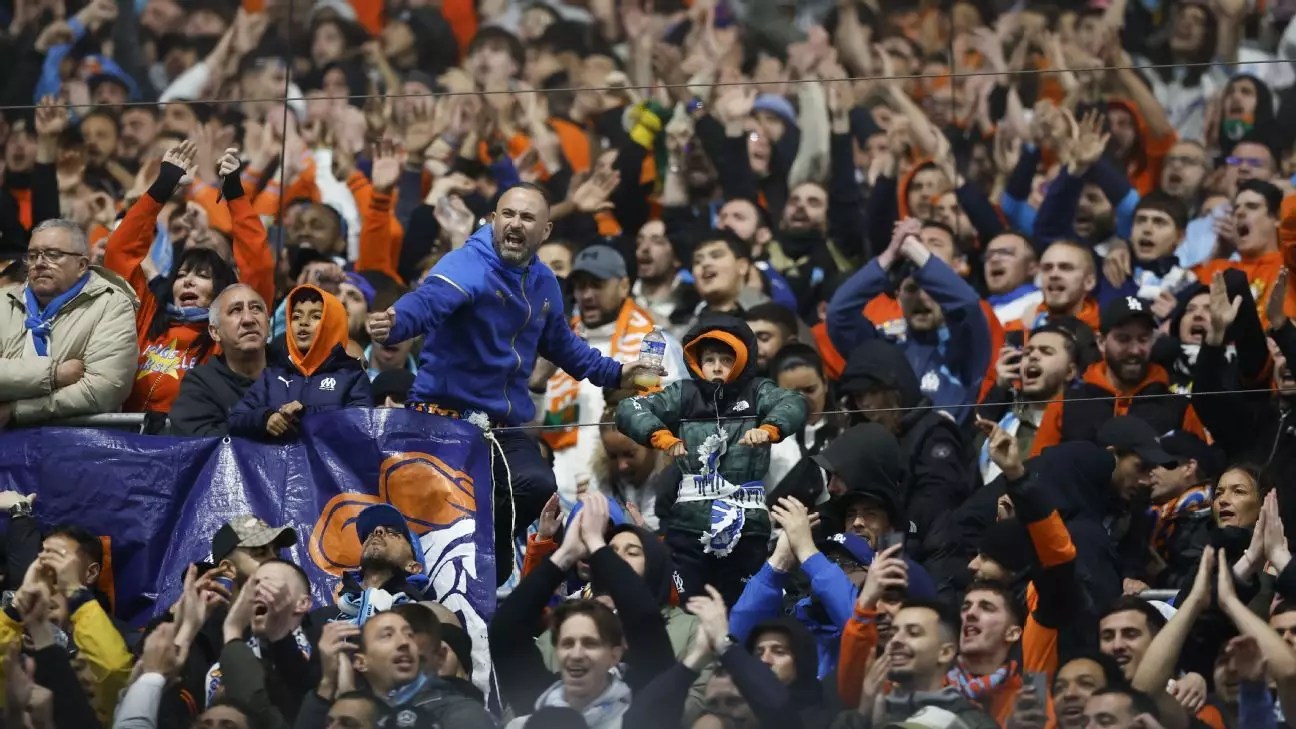French liquor company Pernod Ricard recently found itself in hot water after announcing a new sponsorship deal with Paris Saint-Germain, a move that sparked protests from fans of bitter rival Marseille. The fans argued that the famous anise-flavored drink, pastis, belonged to their city and felt betrayed by Pernod Ricard for partnering with PSG. The backlash was so severe that the company ultimately decided to scrap the deal, citing the strong emotions it had stirred up.
The hashtag #boycottPernodRicard quickly spread on social media as Marseille supporters expressed their dissatisfaction with the company’s decision. Marseille Mayor Benoit Payan even got involved, demanding an explanation from Pernod Ricard. CEO Alexandre Ricard acknowledged the importance of Marseille in the company’s history and expressed regret over the controversy. The decision to terminate the sponsorship was made after listening to feedback from employees, customers, and shareholders, as well as family members.
Pastis, the anise-based liqueur at the center of the controversy, has deep roots in Marseille, where it was commercialized by native Paul Ricard in 1932. The merger of Pernod and Ricard in 1975 led to the creation of Pernod Ricard, which now boasts a global portfolio of over 240 brands. Despite the company’s international reach, the association with Marseille remains a vital part of its identity. Alexandre Ricard emphasized the longstanding connection between Ricard’s history and the city of Marseille, which influenced the difficult decision to cancel the sponsorship.
Following the announcement of the deal, outraged fans threatened to boycott Pernod Ricard’s products, with some vowing to switch to competing brands. The company clarified that the partnership was intended to promote its whisky and champagne brands on a global scale, rather than pastis specifically. While PSG and Marseille have a historic rivalry in French football, the sponsorship deal would have covered both teams and extended to handball as well. The controversy serves as a reminder of the power of brand loyalty and the importance of understanding a company’s cultural significance.
In the aftermath of the Pernod Ricard debacle, it is clear that businesses must tread carefully when it comes to cultural symbols and traditions. The incident highlights the need for companies to consider their historical ties and local allegiances before entering into high-profile partnerships that could alienate key stakeholders. By prioritizing authenticity and respect for their heritage, brands can avoid damaging their reputation and maintain the trust of their customers. Pernod Ricard’s swift response to the backlash underscores the value of listening to feedback and taking decisive action to uphold brand integrity.


Leave a Reply